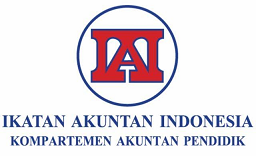PENGARUH ELEMEN GOOD GOVERNANCE TERHADAP TINGKAT KORUPSI DI ASIA TENGGARA
Abstract
Corruption is a complex social, political and economic problem and occurs in every country with different levels. Corruption will complicate democracy and governance of a country. To overcome the problem of corruption, the government must implement good governance. This study aims to provide empirical evidence regarding the effect of elements of good governance on the level of corruption in Southeast Asia. Good governance variables are presented by six variables: voice and accountability, political stability and absence of violence / terrorism, government effectiveness, regulatory quality, rule of law and control of corruption.
Meanwhile, the level of corruption is measured using the Corruption Perceptions Index (CPI). The research sample was selected using the purposive sampling method and produced a sample of 8 countries and the observation period was carried out in 2009-2018 or as many as 10 years, so the number of samples in this study were 80 samples. Corruption level data used in this study uses the Corruption Perceptions Index (Transparency International), while the good governance data used in this study uses the Worldwide Governance Indicators (World Bank). The research methodology used in this study is multiple linear regression analysis with the IBM SPSS Statistics 24 program. The results showed that the variable voice and accountability, political stability and absence of violence / terrorism, and rule of law had no effect on the level of corruption, whereas the government variable effectiveness, regulatory quality, and control of corruption affect the level of corruption.
Downloads
Jurnal Akutansi dan Keuangan allows readers to read, download, copy, distribute, print, search, or link to the full texts of its articles and allow readers to use them for any other lawful purpose. The journal allows the author(s) to hold the copyright without restrictions. Finally, the journal allows the author(s) to retain publishing rights without restrictions
Authors are allowed to archive their submitted article in an open access repository
Authors are allowed to archive the final published article in an open access repository with an acknowledgment of its initial publication in this journal







